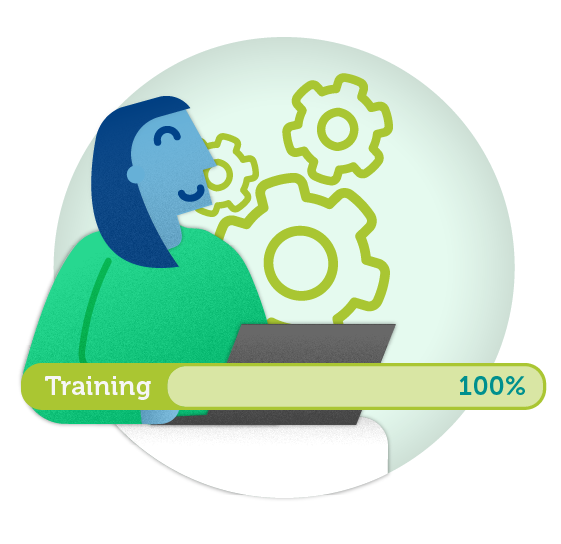

The resources have received formal approval or accreditation outwith the SSSC and the Scottish Government has commissioned and signed off national programmes. The page identifies, promotes and signposts the workforce to the resources we have endorsed to support their CPL.
Including them gives recognition to training and learning that supports the workforce to gain the specialist skills and knowledge required to carry out particular functions and approaches to practice for people working in early years, social care and social work.
The SSSC endorses their content although we cannot be accountable for delivery.
We will review all programmes we have endorsed within a two year period to ensure any changes are reflected and updated accordingly.
The National Joint Investigative Interviewing Training Programme is designed to equip learners with the specialist knowledge and skill required to conduct forensic interviewing of children.
The Scottish Child Interview Model for joint investigative interviewing is a new model of practice designed to be trauma-informed, keep the child’s needs and rights at the centre, and capture best evidence through improved planning and interviewing techniques.
Joint investigative interviews (JIIs) are forensic interviews with children and, within the new model of practice these interviews are conducted using an evidence-based interview protocol called the National Institute of Child Health and Human Development (NICHD) model of interviewing.
You can find out more information about the Scottish Child Interview Model here.


The EPiC learning resource is for everyone working across health and social care and will help you (and the staff or students you support) to have better conversations and interactions with carers. The aim is to make a positive difference and improve outcomes for carers and the people they care for.
It’s up to you how you record your learning. You can use a learning log, notes or a mixture of ways including diagrams, mind maps, video or audio.
You can find out more about EPiC here at the NHS health and social care learning resources website.

The National Trauma Training Programme (NTTP) website provides free access to a range of resources to support workforce development that include animations, films, emodules, videos and key documents. All workers, in the context of their own role and work remit, have a unique and essential role to play in responding to people who are affected by trauma and should be at least at an informed level.
Find out more at the National Trauma Training Programme website.


The guidance toolkit provides clear links, guidance and connections between the framework at the Informed level and the required qualifications for SSSC registration which are considered integral to the delivery of high quality palliative and end of life care. Those working directly with individuals requiring palliative and end of life care should be working at least at skilled level.
You can find out more information about Palliative and end of life care resources here.
Each individual and their employer must make sure they understand and work to the content of the framework as it relates to their role for example we would advise that individuals supporting people living with dementia are working at least at the skilled level.


Find out more about registering with the SSSC including what qualifications you need and how much it costs.

Discover our free learning resources and how our work can support your learning and development.

Read more about our fitness to practise process, registrant responsibilities and how to make a complaint about a worker.